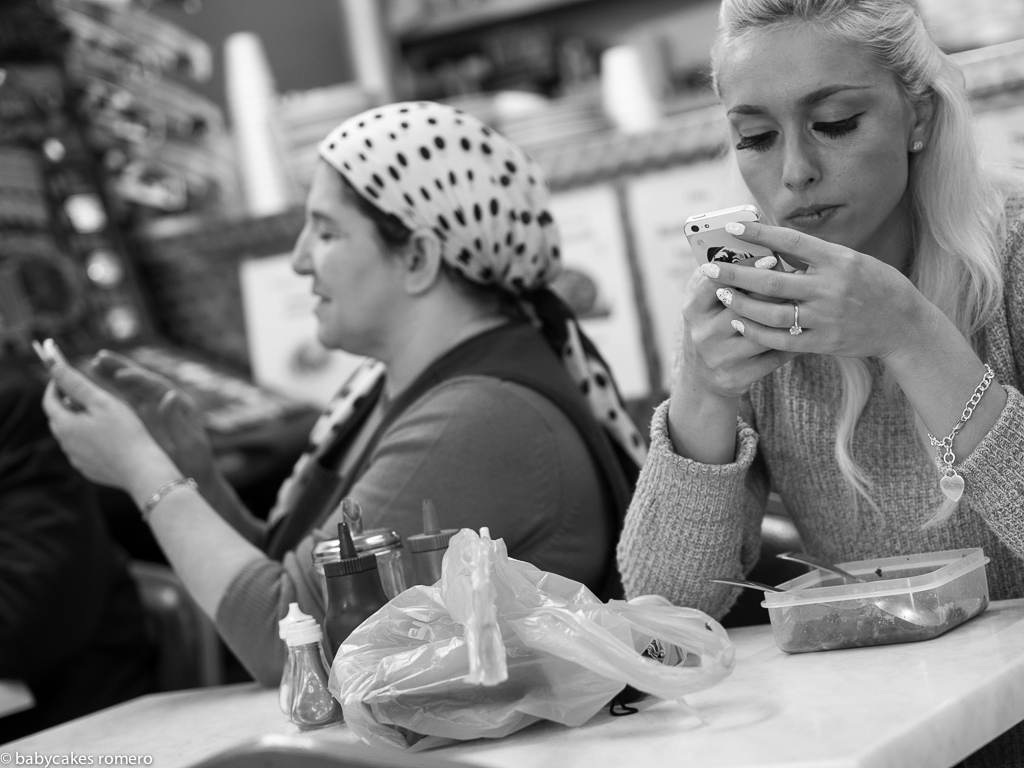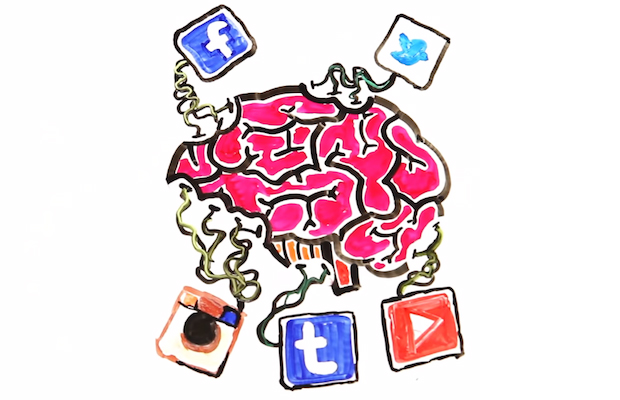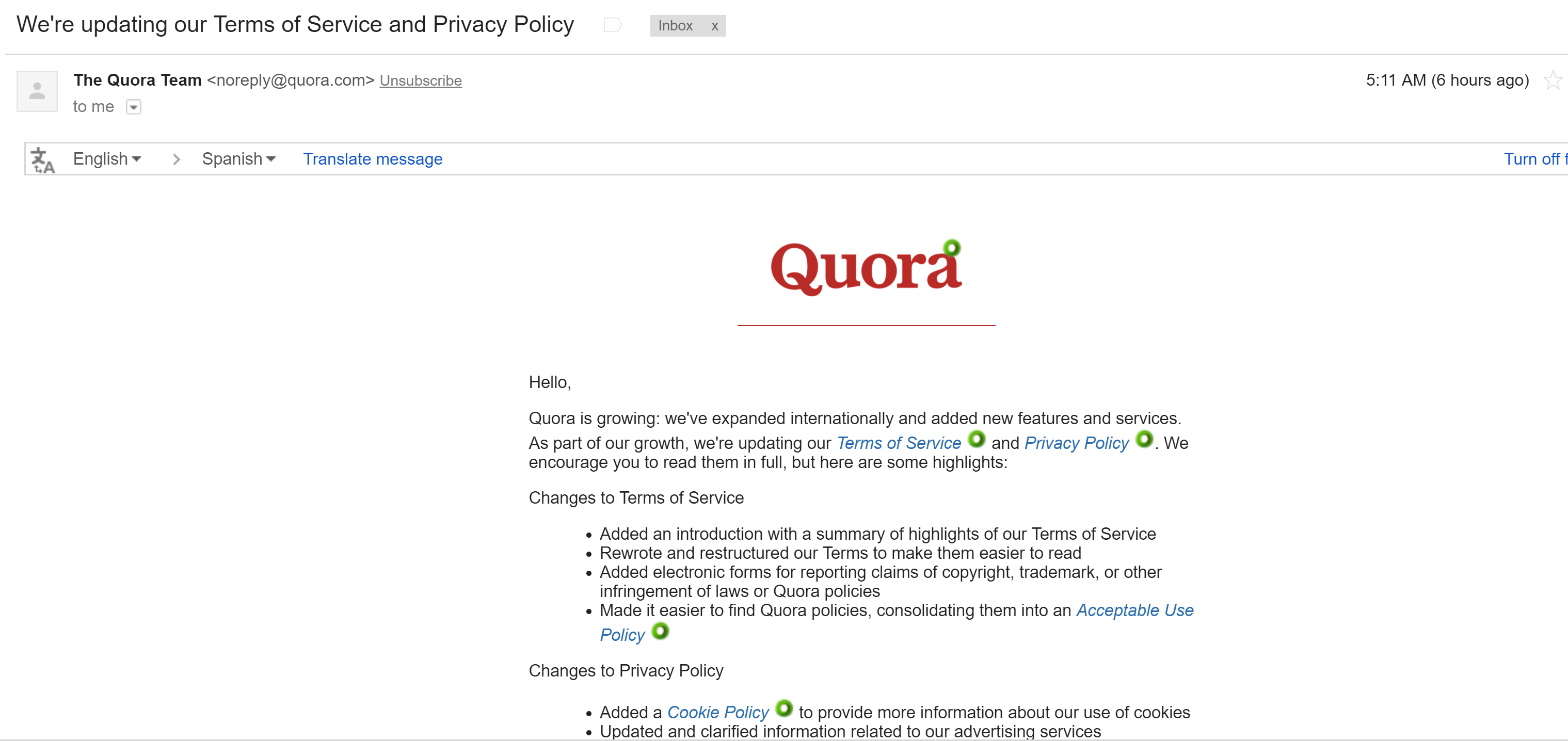THE COOL KIDS
Last week, in a conversation about technology in Political Science, one of my teachers asked the class aloud: Why is it that it’s more “socially acceptable” if I post “Happy Birthday” for my husband on Facebook rather than just telling him in person? Especially when I’m right there in the same room as him?
Five minutes later, the boys flocked to one side of the room and girls fled to the other, arguing over the significance of social media posts on someone’s Sweet Sixteen and college admission. The boys repeated how it was simply annoying to go through 20 pictures of the same birthday girl, while the girls demanded that they made the poster, as well as the postee, feel good. Me, sitting in the middle of this heated discussion, couldn’t help but put on my cybersecurity cap through all of this. At that moment, it became pretty clear: teenagers make A LOT of their lives public, both knowing and unknowingly. We lose control, whether we know it/agree to it. This makes us a huge vulnerability. Let’s take a deeper look:

Social media usage by age. Source: 2017 Sensis Social Media Study
SCIENCE BEHIND THE OBSESSION
First off, it’s important to explore the reasons why teens are so willing to give up this information before thinking about the data they give up.

Source: The Death of Conversation by Babycakes Romero
Over the summer, I watched an informative TED Talk where street photographer Babycakes Romero shared his findings with cell phone usage in society. Through photography, what he found in relation to people and their phones was that people were no longer engaging in meaningful face-to-face conversations, but rather entertaining themselves with their phones. With this observation, he disappointedly concluded that the communication skills that mankind had evolved to develop were exponentially deteriorating because of our priority towards digital reality over tangible social stamina. Specifically, Romero claimed that today, “digital natives” are narcissistic, wanting to isolate ourselves with a device that stores information about them at their fingertips. The reason for this, he explained, is that every time we receive a notification,
the same chemical that is released when doing drugs or exercise is released in our brains. Known as dopamine, this chemical induces pleasure, a satisfying feeling that overtakes us and results in a desire to spend an increased amount of time waiting for more notifications. That’s why teens count likes, stare at screens waiting for the message back, and worry when they do not get one: because the dopamine makes us feel good. So why do we prioritize technology? While social media triggers a dopamine “high,” face-to-face conversations just do not provide the same pleasure for most.
the communication skills that mankind had evolved to develop were exponentially deteriorating because of our priority towards digital reality over tangible social stamina.
Our generation and that after us are the “digital natives” that Babycakes Romero is talking about and labels as “narcissistic.” And it’s gotten to the point where we don’t pinpoint this “narcissism” as a bad thing anymore: us teens actually ostracize those aren’t “narcissistic,” or don’t get as many birthday wishes on Facebook or don’t have a Snapchat, deeming them as more “lonely” or “disconnected” from the rest of us. Thus, it’s become a social norm to share, and share, and share, and share.
With this, it becomes the truth that our younger generation is starstruck by technology and customization far before they think about any privacy/security implications.
The “private” channel that technology gives teens gives us power: from here, it’s up to us, whether that power is used to put others/our current situation down, or get up and lift society above those situations.

Source: Behind the Hustle
IS CONNECTEDNESS A STRENGTH OR A WEAKNESS?
In the obvious case, being surrounded by technology has given us an ability to stay connected with each other in real-time, all the time. Holistically, in times of national distress too, through the power of the Internet and its devices, we are able to reach out to each other, spread the word quickly, and initiate both response/warning systems. On a global scale, this reliable network makes our nation one of the most developed and powerful. Being able to quickly ask the friend down the block a question and receive an answer all under the span of 2 minutes is also a pretty powerful tool to have. On the other hand, there is the argument that on this same token, technology drives us away from talking to each other and makes us bluntly value some relationships over others. This brings up the essential question: Does social media drive us apart or connect us on a whole new level, and does one outweigh the other? Although these two takes are there, we have 2 takes from the “security fanatic” in the room:

Source: The Treatment Center
- With social media, we are able to get news out about data breaches, attacks, vulnerabilities, and patches our quickly, at a speed not possible without the “grapevine” foundation of social media and our Internet.
- Sharing of personal information can be a potential cause for data breaches in companies: Take an example from a professional I was speaking to earlier this week. They were hired to break into a company’s network. The tactic he deployed was,indeed, social engineering: He “friended” the CEO’s 15-year old son by posing as a 15-yearold girl on Facebook. This way, they were able to gather all the information about his father, the CEO of the company, through his son’s profile. Another real example is with Kim Kardashian, and the robbery that she faced in October of 2016. When asked how the robbers, who stole over $5 million dollars worth of jewelry, knew that she was at her hotel, alone: Kim replied that the robbers could have been tracking her on social media, since she had earlier Snapchat-ed that she was home and everyone was going out. She then admitted that that gave the robbers “a window of opportunity.”

Source: Daily Mail
- Take this YouTube video of a Belgian psychic, for instance: https://www.youtube.com/watch?v=F7pYHN9iC9I: The concept was to let “Dave the psychic” read your mind. Dave acted exactly like a psychic, holding the person’s hand and “feeling their energy.” However, Dave then began disclosing much more personal facts, including location of tattoos, home value, bank account number, and type of car driven. How did he do it? Was it real sorcery? Turned out, “Psychic Dave” had a team of “skip tracing” web-browsing gurus behind a curtain, transmitting the information found on the Internet and on the person’s social media pages. Through an earphone, the information was passed to Dave. This video was a fun way of showing a tragic concept: we share way too much and with these bits of information, hackers and malicious parties can dig deeper and uncover things we wouldn’t want anyone to know. On a simpler level, sharing this much information can also affect the way employers, educators, and college recruiters view you and your admission.

Source: The Voice of Technology
I was speaking to earlier this week. They were hired to break into a company’s network. The tactic he deployed was, indeed, social engineering: He “friended” the CEO’s 15-year old son by posing as a 15-year old girl on Facebook. This way, they were able to gather all the information about his father, the CEO of the company, through his son’s profile.
HOW MUCH SHARING IS TOO MUCH?
I can’t tell you not to share or use social media. But the safest option is to limit sharing about yourself and your life. Sharing is “too much” when you begin to either 1. practice bad habits on social media or 2. start sharing TMI (Too much information) about your life or the lives of others. Here’s a good guide to keep your posts in check.
Here are some tips about how to determine this, according to Forbes:
- Think before you post/text/email. Could someone use this against you? Is it going to be recorded? Did you copy the right person?
- References to illegal drugs, sexual posts
- Incriminating or embarrassing photos or videos
- Profanity, defamatory or racist comments
- Politically charged comments
- Spelling and grammar issues: (Yes, even this!)
- Complaining or bad-mouthing – What’s to say you wouldn’t do the same to a new school, company, boss, or peer?
- Don’t post PI, or personal Information, like any addresses, emails, phone numbers, account numbers, passwords, or product code names, etc.
- Don’t use location-based check-in options available on social networking sites. Do we really need to know where you eat lunch? And do you want others to know you eat out frequently and spend 2 hours a day not working?
- Don’t brag online about embarrassing things you’ve done, like skipping work because you’re hungover or leaving at lunch to go golfing.
- Keep in mind that any of this information online can be used against you!
- Don’t post information online about your health status. HIPPA was enacted to protect your privacy.
- Be careful with giving away your location through a post that allows you to automatically tag your location. That’s honestly a simple step you can take to protect your online identity.
- On forms, be cautious to what kinds of information they are asking. If the questions get personal, know where the information is going to. Ask yourself: Is it optional information? If not, try calling them and giving the information over phone > the Internet.

Source: Trend Micro
PRIVACY WITH IOT
privacy policies are the best way to stay on top of the data that “free” services are extracting from you
With all the cameras, microphones, sensors, and gizmos that are only going to upscale, not all of this sharing will be knowingly: for instance, take the newest Amazon Alexa device, the Echo Look, that can photograph clothing and use machine learning to analyze a user’s fashion preferences. While convenient, WIRED also claims that machine learning is powerful enough that the camera could record information about your bedroom, like your blue bed-sheets to market you blue clothing. The Look is just a symbol of the technology of tomorrow devouring details of our lives, without us even knowing it. For now, privacy policies are the best way to stay on top of the data that “free” services are extracting from you. I’ll say this time and time again, it is getting EXTREMELY important to stop before you skip through the “terms & conditions” to read how your data will be managed, used, and what parties it will be shared with. In the case of the Amazon Look, this policy has not come out yet. However, they will have to before the product hits the market. Most legitimate and well-established organizations/apps/websites/services that use data (which are most companies these days) will have a privacy policy that’s easy to find. Here are some big ones you should familiarize yourself with:
Google, Facebook, Twitter, Amazon, Apple, Fitbit
Alright, I don’t mean to scare you with a ton of information about how companies are sucking data from you every time you go online (although that is kinda true). I would just like to highlight to educators, parents, and teens, especially, how a blurry line is forming around SHARING and social media. These ideas of security and privacy should always be ingrained in your mind before you post anything, share any information, start a live video feed from your bedroom, or start going on a “friending” frenzy. Set your standards high for yourself online, and be PICKY about who you connect with. With the holidays upon us and the new year coming up, I wanted to get this central message out about preserving your Personal Information, because in today’s nefarious cyber-world, anything you say, click, or do, can be used against you. The truth is that this issue of cybersecurity has impacted every industry and aspect of our lives, especially today’s political landscape with election hacking, email leaks, and talks of digital privacy in the Supreme Court (like in Carpenter v. US!). So think before you type, practice good digital habits, build a positive reputation online, and think before sharing intimate details (take the time to analyze what intimate means in terms of data, and what could happen to this data).

“We’re updating our Terms of Service and Privacy Policy” : Here’s an email I received just this morning! Take the time to appreciate and read these kind of emails. As a frequent reader and user of Quora, you would like to know what they are doing with your location data, reading lists, and history. Source: Gmail
Thanks for joining me for this study! As always be safe and be smart while surfing.
And to my fellow teens, STOP and THINK about these messages and about your future, before you go online.
Happy Holidays from the BNBCE family,
Detective Safety
All sources used hyperlinked in blue.


